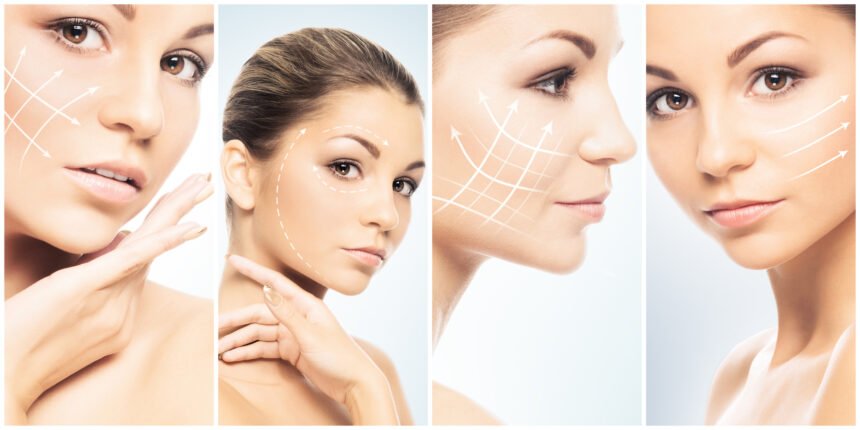Did you know that people spent over $127 billion on plastic surgery last year? Many factors drove the growth.
Like a chameleon changes its colors to adapt to its environment, so too are societal perceptions of self-care continuously evolving.
Nowadays, it’s not uncommon for self-care routines to include procedures that were once perceived as extreme, such as plastic surgery. But how does this shift impact our mental and physical health?
People used to think that plastic surgery didn’t offer any benefits and was purely superficial. This is why we took the time to break down some of the misconceptions in one of our previous posts.
The potential benefits and risks may surprise you. So, let’s turn the page and explore the uncharted territory of plastic surgery as a form of self-care.
Understanding Self-Care
Before delving into the intricate world of plastic surgery, it’s essential to grasp the concept of self-care. Self-care isn’t just about pampering yourself or indulging in guilty pleasures. It’s a holistic approach that encompasses your physical, emotional, and mental well-being.
You might be wondering, how does self-care tie into plastic surgery? Well, it’s simple. When you take care of yourself, it reflects in every aspect of your life, including your appearance. If you’re unhappy with certain physical attributes, it could potentially affect your self-esteem and mental health. Therefore, some people consider plastic surgery as a form of self-care.
However, it’s crucial to understand that self-care isn’t a one-size-fits-all concept. It varies from person to person. For some, a brisk walk in the park might suffice, and for others, it could be attending a therapy session or considering a cosmetic procedure. It’s all about what makes you feel good about yourself, boosts your confidence, and contributes to your overall well-being.
History of Plastic Surgery
Let’s dive into the fascinating history of plastic surgery, a practice that’s been transforming appearances and lives for centuries. The origins of plastic surgery date back to ancient India, around 600 B.C., where physicians were using skin grafts for reconstructive work.
Through the centuries, developments in the practice have mirrored societal changes. The two World Wars played a significant role in advancing the field as surgeons were required to repair horrific war injuries. With the rise of Hollywood in the 20th century, cosmetic surgery gained popularity as stars aimed to achieve perceived perfection.
Key milestones include:
- In the 16th century, Italian surgeon Gaspare Tagliacozzi developed a method of nose reconstruction that’s still in use today.
- The first cleft palate surgery was performed in the 19th century.
- In 1891, the first American plastic surgeon, Dr. John Roe, performed rhinoplasty.
- The first breast augmentation with silicone implants was done in 1962.
From reconstructive procedures to aesthetic enhancements, plastic surgery’s history is rich and diverse. It’s a field that’s continually evolving, driven by both necessity and desire, making it an integral part of modern self-care.
Physical Impacts of Plastic Surgery
When considering plastic surgery, it’s important to fully understand the physical impacts it can have on your body. You can’t downplay the fact that it’s a significant medical procedure with potential risks. One immediate impact is post-operative pain, which varies from person to person based on the extent of the surgery.
You’ll also experience swelling and bruising, which can last from a few weeks to several months. Your surgeon will prescribe medication to manage this, but it’s a part of the healing process you must prepare for.
The recovery period can be lengthy, depending on the procedure. You’ll need to take time out of your daily routine, which could impact your work or personal life.
Moreover, there’s a risk of complications such as infection, bleeding, or adverse reactions to anesthesia. While these are rare, they’re still possibilities and you should be aware of them.
Finally, remember that the results may not be immediate. It often takes time to see the final outcome of the surgery, and in some cases, you might need more than one procedure to achieve your desired look.
Knowing these physical impacts can help you make an informed decision about plastic surgery.
Mental Health and Plastic Surgery
Along with the physical impacts, it’s crucial to consider the potential mental health implications of plastic surgery as well. You might think that plastic surgery will solve all your self-esteem issues, but it’s not always that simple.
You should be aware that:
- The anticipation of a changed appearance can often lead to anxiety and stress.
- Post-surgery, you may experience depression due to physical discomfort during recovery.
- The outcome mightn’t meet your expectations, leading to disappointment and further mental distress.
- There’s also the possibility of developing an addiction to cosmetic procedures, known as Body Dysmorphic Disorder.
While plastic surgery may boost your confidence, it’s not a guaranteed fix for deeper self-esteem issues. It’s important to approach it with a healthy mindset and realistic expectations. Seeking advice from mental health professionals before making such a decision can be beneficial. They can help you understand and manage potential emotional impacts.
Society’s Perception of Beauty
Society’s standards of beauty constantly shift, often influencing your perception of self-worth and potentially driving the desire for plastic surgery. The pressure to fit into these ever-changing ideals can be overwhelming. You’re bombarded with images of ‘perfection’ from the media, celebrities, and even peers, urging you to look a certain way.
The rise in plastic surgery is, in part, a response to this societal pressure. It’s seen as a means to conform, to achieve that ‘perfect’ look. And while it’s your choice to alter your appearance, it’s essential to remember that these standards aren’t a measure of your worth or happiness.
However, society’s perception of beauty is slowly evolving. There’s a growing emphasis on embracing diversity and individuality. It’s about accepting and loving yourself as you are. This shift isn’t about rejecting plastic surgery, but it’s about understanding that it’s okay not to conform, and that beauty isn’t one-size-fits-all.
In this journey of self-care, remember that your decision to undergo plastic surgery should be based on your personal desires, not solely on societal expectations. After all, self-care is more about self-love and acceptance than fitting a mold.
Future of Self-Care and Surgery
In the future, self-care and surgery may intertwine in unprecedented ways, blurring the line between physical enhancement and emotional wellbeing. You might see more people turning to Aestheticon UAE Aestheticon plastic surgery clinic as a form of self-care, not only to improve physical appearance but also to boost their mental health.
Such practices could include:
- Non-invasive treatments for quick, noticeable improvements
- Procedures aimed at improving body functionality
- Reconstructive surgeries for restored self-esteem
- Holistic approaches combining physical surgeries and mental health therapy
You’ll need to stay informed, as this shift in self-care could change societal norms and the way you perceive your body. It might become common to consider surgery as part of your regular self-care routine.
You should also remember that while the future might bring advances in surgical techniques, it’s essential to consider the mental and emotional aspects of plastic surgery. Ensure that you’re not just changing your physical appearance but also attending to your mental wellbeing.
In the future, self-care could mean more than just spa days and meditation. It could involve a thoughtful decision to go under the knife for the betterment of your overall health.
Conclusion
Just like a caterpillar’s transformation into a butterfly, your journey to self-care may involve plastic surgery. It’s not just about looking good, it’s about feeling good too.
This metamorphosis has potential physical and mental health benefits that reflect the evolving definition of self-care. Beauty is in the eye of the beholder and it’s time we redefine it on our own terms.










